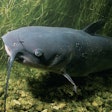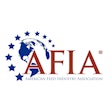As of the time of this writing, the US Food and Drug Administration (FDA) has yet to issue an official Federal Register notice specifying the date and agenda of the public meeting to discuss the impact of the FDA Amendments Act of 2007 on the promulgation of new federal petfood labeling requirements (see Petfood Industry, December 2007).
Many in the public and industry are eagerly awaiting the opportunity to hear FDA's plans and/or comment on this matter. In the interim, however, FDA has recently published two notices in the Federal Register where it has requested public input regarding related matters: its Food Protection Plan (FPP) (Docket No. FDA-2008-N-0188); and third-party certification programs for foods and feeds (Docket No. FDA-2008-N-0183). These notices may be viewed at http://www.fda.gov/OHRMS/DOCKETS/98fr/E8-6833.pdf and http://www.fda.gov/OHRMS/DOCKETS/98fr/E8-6705.pdf , respectively.
Food Protection Plan
FDA's plan for protecting the nation's food supply was released in November of 2007 and can be viewed in full at http://www.fda.gov/Food/FoodSafety/FoodSafetyPrograms/FoodProtectionPlan2007/ucm132565.htm. Briefly, it is described as a comprehensive strategy to help protect the food supply from both unintentional contamination and deliberate attack. The three major components of the plan are to facilitate improvements in:
- Prevention,
- Intervention and
- Response.
For each component, the document details the steps needed to implement its objectives in improving food protection, including proposals for new legislation to provide FDA with greater authorities. For example, to aid FDA in responding to contamination incidents, it asks the US Congress for powers to issue mandatory recalls when necessary and to enhance access to company records during emergencies.
While the document tends to discuss the issue in terms of the human food supply, it is clear to note that the FPP is also intended to apply to animal feeds. FDA understands that ensuring the safety of feeds for food-producing animals has a direct impact on the safety of the final food product derived from those animals, and hence must be an integral part of any viable plan.
This understanding is evidenced by the recent assignment of Dr. Stephen Sundlof as FDA's Director of the Center for Food Safety and Applied Nutrition (which oversees human food safety issues for the agency). As a veterinarian, a toxicologist and the long-time former Director of FDA's Center for Veterinary Medicine, Dr. Sundlof is uniquely qualified to help lead the agency in both food and feed safety matters. Petfoods are not forgotten in the FPP, either. Last year's petfood recall due to contamination with melamine and related compounds is discussed several times within the document as an example of where oversight of the food supply needs fixing.
Third-party certification programs
In its efforts to ensure safety of foods and feeds, FDA inspection personnel simply cannot be everywhere, especially with regard to imported products. One of the proposals within the FPP, but discussed more thoroughly in the second notice, is the possibility for FDA to accredit (or recognize entities that accredit) third parties to conduct inspections and evaluate products and facilities to ensure compliance with FDA requirements. Such third parties could include other federal agencies, state and foreign governments and private companies.
Third-party certification would augment, not replace FDA inspections, and FDA would not be bound by such certification in determining compliance with FDA requirements. However, it would allow FDA to better allocate resources and focus its inspection and surveillance efforts on products, facilities or firms that are of greater potential risk to the food supply.
Implementation of this aspect of the FPP would require new legislative authority. Critical to the success of a third-party certification program would be rigorous oversight of the accreditation process by FDA. Both FDA and the public must be confident in the competence, integrity and fairness of the third parties performing the certifications. To that end, FDA would have to audit the work of these parties to ensure that FDA requirements were consistently assessed, review their inspection reports and provide ongoing training criteria.
Submission of comments
In both notices, FDA includes a series of specific questions regarding various aspects of the topics at hand. Public comments do not have to address all or any of the questions specifically, and could include comments on aspects not addressed in the questions. However, since the questions posed in the notices indicate the aspects of most concern by FDA, comments that consider the type of information FDA is seeking will help the agency as it further deliberates on these matters.
Comments on either of these matters may be submitted by mail to the Division of Dockets Management (HFA-305), Food and Drug Administration, 5630 Fishers Lane, Room 1061, Rockville, MD 20852. The docket number listed previously should be used in any correspondence. While FDA is no longer accepting comments by e-mail, they can still be submitted electronically through the website http://www.regulations.gov.
While both notices were published the same day, the deadlines for comments are different. The last day for comment on FPP is July 31, 2008. However, comments on the third-party certification programs must be received by May 19, 2008.

















